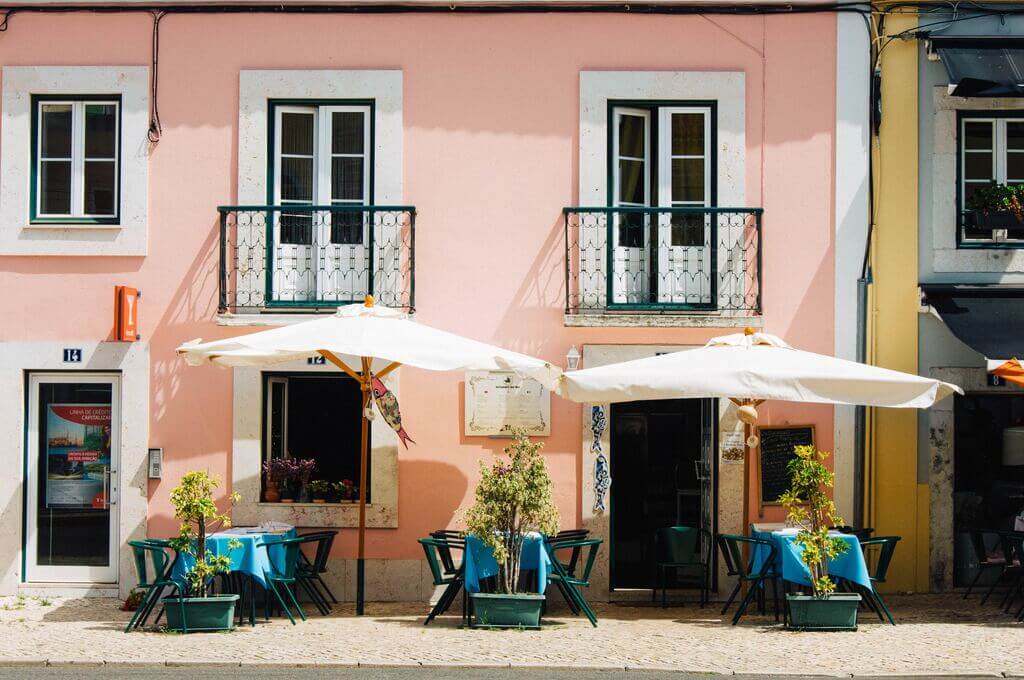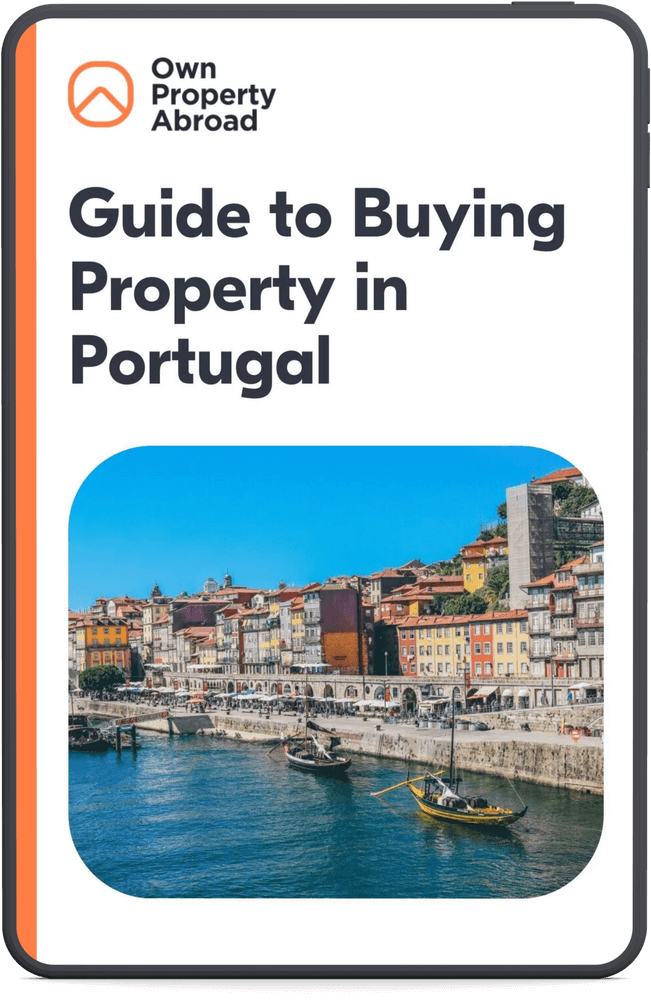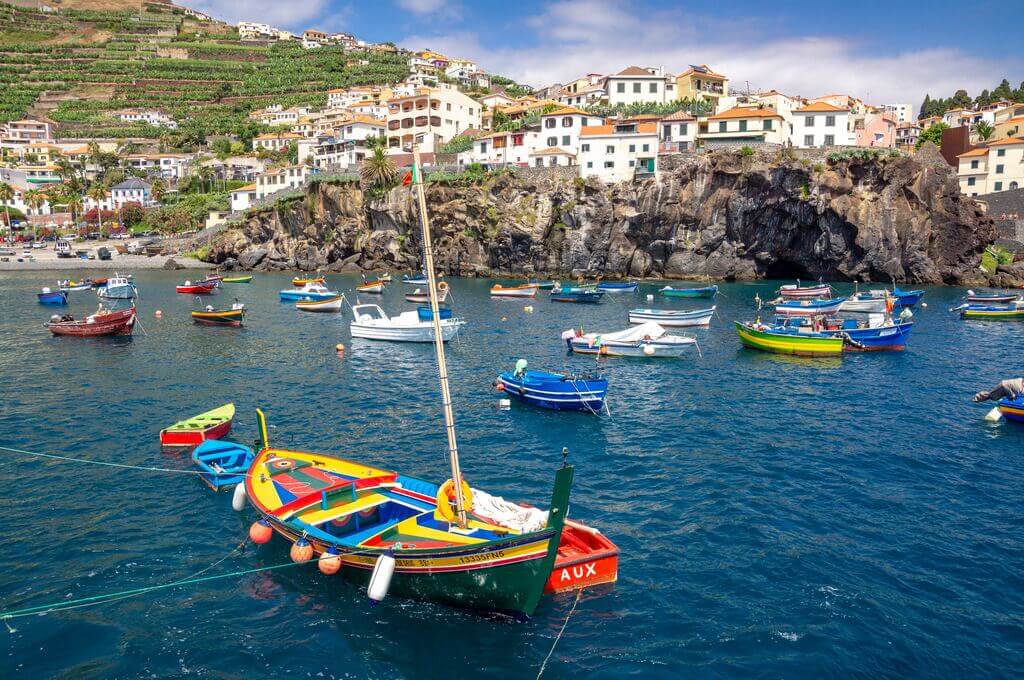7 things to know before moving to Portugal
There are several things to know before moving to Portugal. The list below makes moving to Portugal simple and explains more about living in Portugal, working in Portugal, the cost of living in Portugal, the best place to live in Portugal, and buying real estate in Portugal.
Valuable insights and practical advice, distilled from years of expertise and real-world experience.


1. Finding accommodation in Portugal
Undoubtedly, your priority is finding the best place to live in Portugal. Whether it be an apartment, a townhouse, a bungalow, or a villa, you must make sure that you explore different options available that suit your budget and lifestyle preferences. There are several types of real estate in Portugal. Foreigners can buy property in Portugal or rent a property for the long term.
2. Healthcare and insurance in Portugal
It’s essential to have appropriate insurance coverage when moving to Portugal from the USA or the UK. Portugal’s public healthcare system is Serviço Nacional de Saúde (SNS). To access public healthcare, you must register with your local health center (Centro de Saúde) and obtain a user card (Cartão de Utente). This card will grant you access to primary care services.
If you are an EU citizen, obtain a European Health Insurance Card (EHIC) before relocating to Portugal. Non-EU citizens get comprehensive health insurance before moving to Portugal. This insurance should include medical expenses, hospitalization, emergency care, and repatriation.
While many healthcare professionals in Portugal speak English, especially in urban areas, learning some basic Portuguese medical terms and phrases can be helpful. It will facilitate effective communication and ensure you receive the best possible care.
3. Visa and residency in Portugal
Portugal offers several options for individuals seeking to establish residency, whether for work, retirement, or investment purposes. The two most popular pathways are the D7 Visa and the Golden Visa.
The D7 Visa in Portugal offers a pathway for individuals seeking to relocate to the country, with the main requirement being a minimum passive income of at least €760 ($831) per month or €9,120 ($9,968) per year.
On the other hand, the Golden Visa presents a residency-by-investment opportunity for non-EU citizens, allowing them to acquire Portuguese residency by meeting specific qualifying criteria, including investments in real estate Portugal, investment funds, job creation, contribution to scientific research, or donation to the arts.
4. Opening a Portuguese bank account
A local bank account simplifies day-to-day transactions and allows you to proceed with financial transactions seamlessly. The primary step is to obtain the tax identification number (NIF). Afterward, opening a bank account is an easy task since there are many options to choose from.
You can open a bank account in Portugal through an online service, that allows you to open a bank account remotely (3 to 4 weeks) or in-person (1 to 2 weeks). Click the button below to get started.
5. Portuguese taxes
As they say, taxes are the lifeblood of the government, so make sure to pay your fair share when you move into Portugal. Property taxes are involved, especially when you buy a home or acquire gainful employment. But before that, check this article to learn how to become a tax resident in Portugal.
6. Work in Portugal
Non-EU citizens typically require a work permit or visa to work in Portugal. The process can vary depending on factors such as the type of employment, qualifications, and duration of stay. The work permit is usually waived for EU citizens, but a residence certificate will be required if the work exceeds six months.
If you have a work permit and have resided in Portugal for five years, you can claim permanent residence. Once you obtain permanent residence status, you won’t have to obtain a work permit. Before you can start working in Portugal, you need a Portuguese social security number (NISS), which you can obtain here.
7. Retiring in Portugal
Without a doubt, many retirees move to Portugal to enjoy their golden years. The country remains at the top of the list for sought-after retirement places due to its high quality of life and serene landscapes. Americans moving to Portugal has become a trend, and other foreigners can retire in Portugal through the D7 Visa program.

Advantages of living in Portugal
Just like with many countries, moving to Portugal has pros and cons. As more people want to move away from the fast-paced city lifestyle, Portugal is becoming a second option for many people, enjoying the perfect balance between work and nature. Here are some key advantages of living in Portugal:
- Portuguese culture embraces a more laid-back and relaxed life in Portugal. You can stroll through the streets leisurely and travel without owning a car.
- Portugal boasts a mild and temperate climate, with warm summers and mild winters. This favorable weather creates an inviting environment for outdoor activities year-round.
- Portugal offers a relatively affordable cost of living compared to many other European countries. Housing, groceries, dining out, and entertainment expenses are generally more budget-friendly.
Disadvantages of living in Portugal
Moving to Portugal has pros and cons. You should also be aware of the bad things about living in Portugal:
- Tourist areas may have many Portuguese people speaking English. But outside of these places, English speakers are less standard. This language barrier may make communicating effectively in daily life or professional settings challenging.
- Portugal has experienced economic growth recently, but the job market can still be challenging, especially for non-Portuguese speakers. It can make it difficult for expats moving to Portugal to find well-paid positions, particularly in specific industries.
- Strong family ties amongst Portuguese may also be disadvantageous for expats in Portugal. Portuguese people prioritize their family even in a work setting, also known as nepotism.
How to move to Portugal?
Immigrating to Portugal requires careful planning and preparation. Before making a move, thorough research is essential. Familiarize yourself with Portugal’s culture, lifestyle, cost of living, job market, healthcare system, and, most importantly, visa requirements. We recommend either the D7 Visa or the Golden Visa.
However, the process may be challenging to do alone. It is best if you engage the services of an immigration expert. An immigration expert provides personalized guidance based on your specific circumstances, helping you understand the most suitable visa option for your needs and assisting with the application process.
Moving to Portugal checklist
Moving to Portugal is made simple with this checklist. Make sure that you have the following requirements:
- Valid passport
- Proof of address in Portugal
- Proof of Funds, if applicable (especially for retirees)
- Verification of Employment, if applicable
- Tax Identification Number (NIF)
- No conviction
- Health Insurance
- Bank account in Portugal
Move to Portugal with Own Property Abroad
Do you want to move to Portugal? Own Property Abroad can assist you with moving to Portugal. Thanks to our knowledge and experience, we can help with moving to Portugal and real estate matters, such as legal requirements, finding suitable properties, negotiating the best deals, and conducting due diligence.
For further information on how we can assist you, kindly drop your details below or email us at [email protected].
Valuable insights and practical advice, distilled from years of expertise and real-world experience.


Frequently Asked Questions (FAQs)
How much money do you need to live comfortably in Portugal?
The amount of money required to live comfortably in Portugal depends on various factors such as location, lifestyle, and personal preferences. The D7 visa requires a minimum passive income of at least €760 ($831) monthly or €9,120 ($9,968) per year. On top of housing expenses, the ballpark figure might be around €925 ($1,011) to €1,400 ($1,530) per month.
What steps do I need to take to live in Portugal?
To live in Portugal, you must find suitable accommodation, apply for the appropriate visa or residence permit, and register with local authorities.
How difficult is it to move to Portugal?
Moving to Portugal presents some challenges, but it is doable. Considering the high rates of foreigners moving into the country, it is not relatively complex.
Is Portugal a good place to live for foreigners?
Yes, Portugal is an excellent place to live for foreigners. With its high quality of life, affordable cost of living, welcoming government policies for foreigners, and beautiful natural landscapes, Portugal attracts expatriates from around the world seeking a laidback lifestyle.
What are the cons of living in Portugal?
Some potential cons of living in Portugal include limited job opportunities for foreigners, bureaucracy, and especially language barriers.




